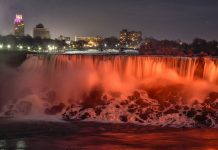“I put on the table, brother governments of the ALBA, the proposal of the cryptocurrency, the petro, so that we assume it as one of the projects of the integration of the 21st century in a bold way, but also in a creative way.”, said Venezuela’s president Nicolas Maduro.
Maduro has called for 10 other countries to adopt his planned oil-backed cryptocurrency, the petro, during a meeting of the Bolivarian Alliance for the Peoples of Our America – Treaty of Commerce of the Peoples (Alba – TCP) on Friday. Alba consists of Antigua and Barbuda, Bolivia, Cuba, Dominica, Ecuador, Nicaragua, Saint Lucia, Saint Vincent and the Grenadines, Saint Kitts and Nevis, Grenada, and Venezuela.
Since its announcement in early December, the idea of a Venezuelan national cryptocurrency has been a subject of controversy. After allocating over 5 billion barrels of crude oil to support the new currency, Maduro ordered the release of the first 100 million petro coins and organized a meeting of miners.
Venezuela urges 10 other countries to adopt the oil-based cryptocurrency and Petro is expected to appear in 6 weeks and will be pre-mined.
However, just one day before Vargas’ announcement, the Venezuelan Constituent National Assembly declared the cryptocurrency illegal. Parliamentarians unanimously voted “absolute nullity on the issuance of the petro cryptocurrency”.
A response to the Assembly’s decision was prepared in a recent workshop hosted by the Central Bank of Venezuela called “The role of Venezuelan youth in disruptive technologies”. On Friday, the Minister for Youth and Sports, Pedro Infante, said Venezuelan youth will propose to the Assembly “to create a special commission that will be in charge of debating the proposals presented by the various sectors, to carry out the financial system of the cryptocurrency Petro.” He also added “We are proposing that the ANC [Constituent National Assembly] has to set up a special commission to deal with the cryptocurrency issue. Appoint a commission with groups of experts to constantly debate to see what legislation is needed.”
















